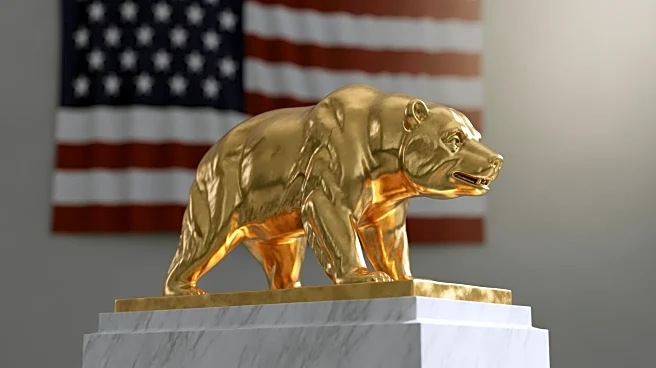What's Happening?
California Governor Gavin Newsom has publicly acknowledged his interest in running for the presidency in 2028. In a pre-taped interview with CBS News Sunday Morning, Newsom stated that he would be lying
if he denied considering a White House campaign. Despite this admission, Newsom remains non-committal about officially entering the race. Over recent months, Newsom has visited key early voting states and launched a podcast to refine his debate skills, often engaging with conservative guests. His social media presence has also become more provocative, frequently responding to GOP critics. Newsom is currently serving his final term as governor due to term limits in California, which prevents him from seeking a third consecutive term.
Why It's Important?
Gavin Newsom's potential candidacy for the 2028 presidential election could significantly impact the Democratic Party's strategy and dynamics. As a prominent figure with national recognition, Newsom's entry into the race might influence other potential candidates and shape the primary landscape. His progressive policies and confrontational style could appeal to a broad base within the party, potentially challenging more moderate candidates. Additionally, Newsom's candidacy could affect the political discourse, especially in terms of addressing issues like climate change, healthcare, and social justice, which have been central to his governorship.
What's Next?
While Newsom has not officially declared his candidacy, his actions suggest preparation for a potential campaign. Observers will likely watch for further moves, such as forming exploratory committees or increasing his presence in key states. The Democratic Party and its members may begin to position themselves in anticipation of his decision, potentially leading to shifts in alliances and campaign strategies. Newsom's interactions with national figures and his responses to political developments will be closely monitored as indicators of his intentions.
Beyond the Headlines
Newsom's potential presidential run raises questions about the future direction of the Democratic Party. His approach to governance and political engagement could redefine party priorities, especially in areas like environmental policy and social equity. Furthermore, his candidacy might influence the broader political landscape, encouraging debates on state versus federal governance and the role of progressive leadership in national politics.









